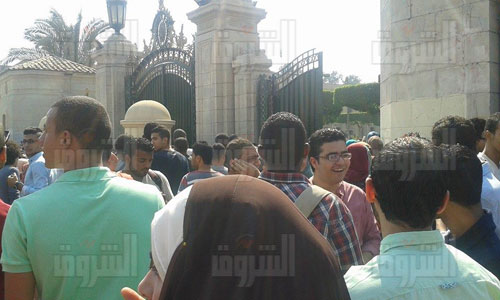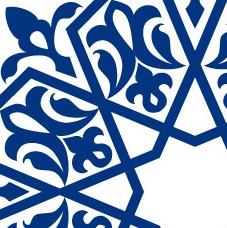Egypt’s new academic year has begun amid heightened tension between students and the authorities. With protests taking place at most public universities throughout Egypt, at least 127 students were arrested in the first three days.
Measures Put in Place Before the Start of the Academic Year
Authority of Expulsion
In January, the Supreme Council of Universities approved an amendment to the University Regulations Law, granting university heads the authority to expel students “who perform terrorist acts, acts of sabotage that interrupt the educational process, lead to danger, target university facilities or exams or work on campus, assault a person, assault a private or public property or incite students to commit acts of violence.”
Six months later, Sisi issued a presidential decree stating university heads would be chosen by presidential appointment, rather than by election. The decree states, “The head of the university is to be assigned by the president based on a recommendation from the Minister of Higher Education, who chooses between three professors nominated to him by a specialized committee; the president would have final say on the appointment.” It also regulates that university heads can fire deans of faculties prior to the end of their assigned duration. The Egyptian cabinet approved Sisi’s decree, declaring that university chairs can expel staff members without “necessary legal disciplinary actions.”
Tight Security Control
Banned from campuses by judicial order since 2010, the question of police presence on university campuses once again emerged during the previous academic year. In October 2013, police presence was approved on Al-Azhar’s campus. In April 2014, Cairo University followed suit.
In October of this year, private security firm, the Falcon Group, was hired to provide on-campus security services at fifteen state universities, as well as at Al-Azhar University. Measures put in place by Falcon included steel gates installed in front of electronic gates at campus entrances, and female security guards stationed at entrances. The firm, however, would not be equipped with live ammunition.
Long queues outside public universities at the start of the new semester is one of a few outcomes of the heightened security measures, as new security personnel inspect student IDs and belongings before they are admitted on campus.
The decision to hire the security firm has only further spurred protests since the start of the academic year.
Ban on Political Activity
In August, Cairo University President Gaber Nassar announced that Cairo University was to ban all politically affiliated student activities in the new academic year. Student groups would be dissolved if they were used for political purposes. Nassar later announced an official freeze on groups affiliated with Egypt’s most prominent political parties, two of which had stood in support of the Morsi ouster: the Dostour Party, the Strong Egypt Party, and the Safafist Nour Party. “No political society, whether supporting the regime or opposing it, will be allowed to work on campus,” Nassar said. He added that the university had also banned protests in student dormitories, as “university dorms are not a suitable place for protests and partisan conflicts,” adding that the university can expel students who violate the rule without any investigation from the dormitory.
At the beginning of September, Minister of Higher Education Sayed Abdel Khalek announced a ban on political activity on all university campuses. He said the ministry would not allow partisan or political agendas on campus, affirming that the ministry “will apply the law firmly and decisively on everyone,” including faculty members and employees.
Days later, the Cabinet agreed to a draft bill mandating the suspension of university staff, employees, and students “found guilty of inciting violence, participating in campus protests, belonging to extremist organizations, or facilitating the entrance of weapons to campus.” Al-Azhar University’s deputy head later confirmed the ban on the Azhar campus during an interview with Sada El-Balad channel.
University presidents across the country have threatened to suspend or expel students who “offend or incite” against President Abdel Fattah al-Sisi or other “symbols of the state.” Beni Suef University ruled that students who carry out actions or speeches offensive to Sisi would face expulsion. Ain Shams University declared that students who are engaged in these acts would face investigation. At Mansoura University, students who want to renew their ID cards need to signed on a document that mandates them to “respect the traditions and norms of the university.”
Alexandria University has suspended six student groups allegedly affiliated with religious and political parties. The university accused the Benaa group of being affiliated with the Muslim Brotherhood, the Youth Who Love Charity group with the Salafi Salafi, and the Life Makers group with an NGO founded by Islamist preacher Amr Khaled. The Midan group was accused of belonging to Dostour Party, the Word is Ours group to the Strong Egypt Party, and the Ultras group to the Free Egyptians Party.
Extent of Protests since Saturday
With the start of the academic year, students at several Egyptian universities took to the streets in protest. They rallied against the decision to hire Falcon to secure university campuses, as well as protesting the detention of their colleagues.
Protests at Alexandria University on October 12:
Students break electronic gates at Al Azhar University
Security forces close Cairo University gates preventing students from entering:

Security presence at Cairo University on October 12Security presence at Alexandria University on October 13:
Protests at Helwan University :Protests at Cairo University: The Falcon Group claims it suffered financial losses worth of EGP30,000 because of the student protests. Sherif Khaled, the CEO of the firm told Aswat Masriya losses involved “the damage of two electronic gates at Al-Azhar University and a crack in a third gate at Cairo University.”
During the first three days of protests, at least 127 students were arrested according to the Association for Freedom and Thought Expression. At least seventy-eight students were arrested from their homes nationwide on Saturday and Sunday.
The breakdown of the 127 arrests is as follows:
| Cairo University | 15 |
| Alexandria University | 16 |
| Damietta University | 11 |
| Menoufia University | 5 |
| Kafr el-Sheikh University | 9 |
| Mansoura University | 6 |
| Al-Azhar University | 9 |
| Aswan University | 4 |
| Damanhour University | 3 |
| Benha University | 5 |
| Tanta University | 7 |
| Helwan University | 6 |
| Suez Canal University | 3 |
| Suez University | 1 |
| Fayoum University | 8 |
| Minya University | 6 |
| Zagazig University | 1 |
| Private universities | 12 |
Statements by student protesters
Requesting the authorities to release the detained students, The Students Against the Coup (SAC) initiated a campaign called “Return the Students.” The SAC issued a series of statements, condemning the government’s repressive security measures and rights violation, and called on students to resist the repression by continuing the revolutionary spirit in struggling to achieve freedom.
In a later statement released on Sunday, it said, “The government repression and the security grip can never stop the student revolution, despite the high walls and steel gates of the universities, despite the use of private security, trained dogs, and despite the massive arrests of students.” The statement continues, “We call on students to continue on the struggle for freedom and dignity against the repressive military state.”
The Freedom for the Brave movement issued a statement condemning the security forces for the arrest of students from their homes. The group believes the move is a violation of the students’ rights to education, expression, and peaceful assembly. The group urged the Egyptian government to limit its repression on students, warning that violence against students will result in dangerous consequences.
Statements by authorities The Ministry of Interior’s statements describe all student protesters as “students belonging to the Muslim Brotherhood terrorist group.” According to an October 12 statement issued by the ministry, protests took place at Al Azhar, Ain Shams, Cairo, Mansour and Zagazig universities. The interior ministry said that no more than 200 students took part in the Al-Azhar University protests, while 150 students protested at Ain Shams University, and 220 students at Cairo University.
On October 14, the ministry issued a statement saying it had intervened in protests after students broke the campus gates and threw rocks at security forces stationed outside. The statement added that thirty students were arrested.
According to a second statement, all student protests ended on Tuesday except for a 250-strong gathering at the Engineering Faculty at Alexandria University. The ministry claimed that students were armed with Molotov cocktails and birdshot, resulting in the injury of two policemen and two students.
“All the students who participated in the violence and riots that took place in universities earlier today and were filmed on CCTV won’t officially be university students by the evening,” Higher Education Minister Sayed Abdel-Khalek said during a Mounifeya University conference early on Sunday.
Mohamed al-Kenawy, the president of Mansoura University warned, “Police would respond to any gathering in a decisive manner, in a way greater than anyone can imagine.” He has reportedly said, “Do not tell me about freedom of expression.”
As Egyptian interior minister ordered police to guard the campus of Al-Azhar University after protests broke out, Hani Abdel-Latif, interior ministry spokesman, told Mehwar television channel, “Police will only deal with illegal acts, and thus they will be present outside the campus, and will only step inside if necessary.” He added that “university guards in their old form will not return.”
Local Reactions to the Protests
Two guys in civvies on the police side aiming at students inside Alexandria university campus today. #Egypt pic.twitter.com/pys6Xr3eul
— Mina Fayek (@minafayek) October 14, 2014
Fire engulfs the main gates of #Alexandria University (College of Arts). photo by Hassan Mahrous #Egypt pic.twitter.com/d6rnJf9mFh
— Amro Ali (@_amroali) October 13, 2014
The Popular Current denounced the security forces actions in universities and warned of dangerous consequences.
A host of Egyptian rights groups, including the Arab Network for Human Rights Information, the Cairo Institute for Human Rights Studies, the Nadim Center for the Rehabilitation of Victims of Violence and Torture, the Hisham Mubarak Center for Law, the Association for Freedom of Thought and Expression, and Nazra for Feminist studies issued a statement documenting violent actions carried out by the police forces on student protesters. It described the heightened security measures as “futile,” noting, “This will only make matters worse, as it agitates students, rather than containing and controlling their anger.” Human Rights Watch similarly issued a statement calling for the release of students who have been arrested.
Human rights lawyer and former presidential candidate, Khaled Ali writing about the freedom of universities, said the start of the new academic year revealed the regime’s intention to strengthen its suppression of political movements among students. He condemned the government’s strategy of using security forces to deal with political dissent on campus, warning that this strategy will only fuel tension between students and authorities and create a bigger wave of uprising. He called on the government to release student detainees, to cease passing bills that undermine academic freedom, to cancel contracts with private security firms, and to direct money spent on security measures on student activities.
